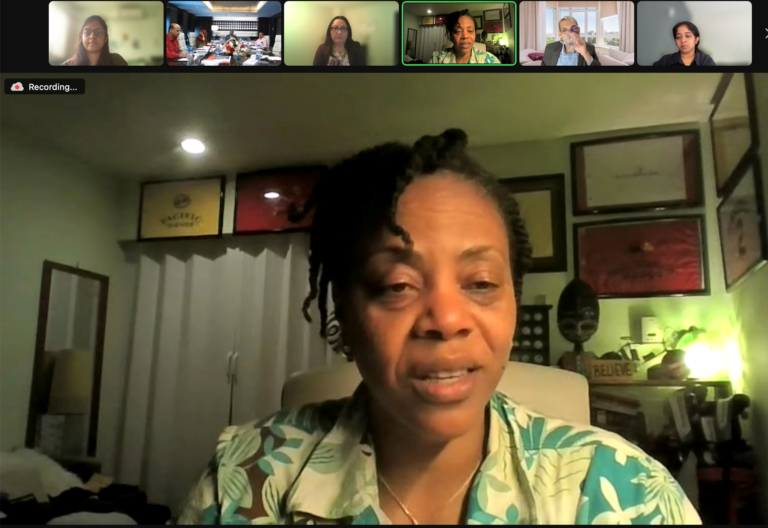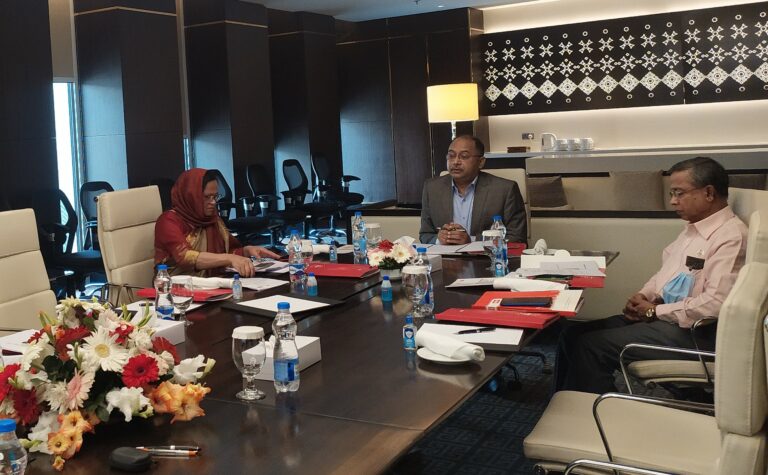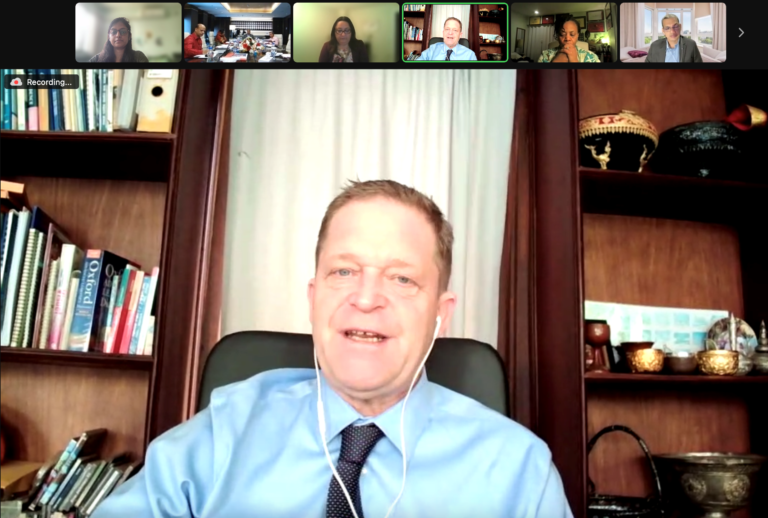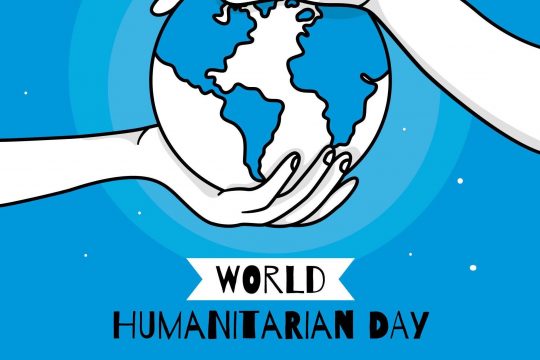15 March 2022
Dhaka, Bangladesh
Asian Disaster Preparedness Center (ADPC), through its Bangladesh Preparedness Partnership (BPP) program, organized the Second High-level Tripartite meeting with the Ministry of Disaster Management and Relief (MoDMR), Bangladesh, and the Bill & Melinda Gates Foundation (the Foundation) to take stock and strategize a way forward for enhancing preparedness and emergency coordination in Bangladesh.
The discussion aimed at monitoring the progress and brainstorming on ways to strengthen partnership for effective implementation of the Standing Orders on Disasters (SOD) in Bangladesh through the ‘Whole of Society’ approach. SOD is a key document that guides preparedness and emergency response coordination from national, sub-national, and local levels in the country. It holds considerable importance as it complies with commitments pledged in the Sustainable Development Goals (SDGs), Sendai Framework for Disaster Risk Reduction (SFDRR), and other international agreements and charters.
Following the Whole of Society approach, BPP supports Bangladesh in integrating the core mandate of SOD, which is multi-sectoral engagement for disaster management with 15 partners that include civil society organizations, the private sector, and the academia under the stewardship of MoDMR. The BPP program framework was conceptualized after a series of consultations with the Gates Foundation and MoDMR. The framework was endorsed by MoDMR in the First Tripartite meeting held in August 2021.

Dr. Valeri Nkamgang Bemo, Deputy Director of Emergency Response in the Foundation emphasized that the private sector has a huge impact on the country’s economy, therefore it has great potential to contribute to disaster preparedness in Bangladesh, “BPP should bring the private sector along in this journey”, she added. Ms. Pilar Pacheco, Senior Program Officer of Emergency Preparedness in the Foundation urged the Ministry to formulate a plan and point out ways in which BPP and the government can work together to improve DRR activities in the country.
Mr. Md. Kamrul Hasan, Secretary, MoDMR highlighted the nation’s susceptibility to disasters and emphasized building stronger partnerships for disaster management. Following Mr. Hasan’s remarks, Mr. Hans Guttman, Executive Director, ADPC added that BPP will leverage the expertise from the Asian Preparedness Partnership (APP) having similar multi-stakeholder partnerships for knowledge sharing.
He also suggested that the Ministry identify ways to reach out to people who are technologically underserved and use ADPC’s technical experience to devise new approaches to reduce the risk of disasters in the country.


Presenting the progress and status of BPP, Mr. Sisira Madurapperuma, Director of Preparedness for Recovery and Response in ADPC walked the participants through the BPP journey since 2017, key milestone, and progress. This was followed by a session on the BPP Roadmap by Ms. Momena Khatun, Joint Secretary in MoDMR. The BPP roadmap documents priority interventions in the short, medium, and long term for enhancing emergency response coordination through the “Whole of Society” Approach.
She stressed three highly vulnerable districts (Bandarbanland for landslides, Kurigram for floods, and Bagherghat for cyclones) in the country which are identified by the MoDMR to pilot the disaster management coordination system and disability-inclusive DRR. She also suggested including the existing plans of Bangladesh such as the Bangladesh Delta plan in BPP.
Cover Photo by Freepik.


